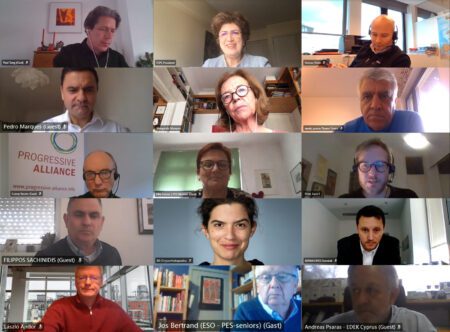The devastating effect of COVID-19 on people’s lives and the economy has proven, yet again, the importance of a well-functioning welfare state, funded by a just tax system.
Europe must now embrace a coordinated approach to tax and update its tax rules so they can promote the implementation of climate targets, address social inequalities, and be in line with the new corporate models, strengthening tax justice by preventing a race to the bottom.
Maria João Rodrigues, PES Economic and Financial Network chair and FEPS President, said:
“A coordinated EU approach to taxes is badly needed. Without it, we risk destroying the very systems which keep our societies afloat.
“We live in an ever-changing world. Our tax systems our outdate. Especially when it comes to corporate taxation. We need to modernise our tax policies to address new business models and to help with promoting a smooth green transition. Social and economic inequalities have been growing the past decades and these are directly correlated with tax system that favours corporate profits over social wellbeing. This has got to be reversed.
“The last financial crisis resulted in cuts to global tax rates and spending at the moment when our societies needed investment the most. The same remedy again would devastate the welfare states we have all been reliant on to get us through the pandemic. Europe must step up and decide on tax policies that can fund the MFF and the recovery fund.
“As we get a grip on this crisis, the recovery must translate into growth and tax revenues to support well-functioning welfare states. Economic growth is never a mere end in itself: it is the means by which we serve the needs of people, families and society. Europe can and must support this, acting as the foundation to secure tax justice.”
The PES Financial and Economic Network – made up of high-level representatives from PES member parties, MEPs, YES and trade unionists – convened to discuss the PES’ vision of a fair tax system.
The meeting exchanged on a brochure being prepared by the PES which sets out taxation policies to: fix inequalities; increase sustainability for the planet; fight tax evasion, avoidance and fraud; and, connect taxation and the European dimension. Moreover, the meeting discussed the progress of the OECD’s Inclusive Framework work on Taxing the Digital economy and exchanged on the way forward.



